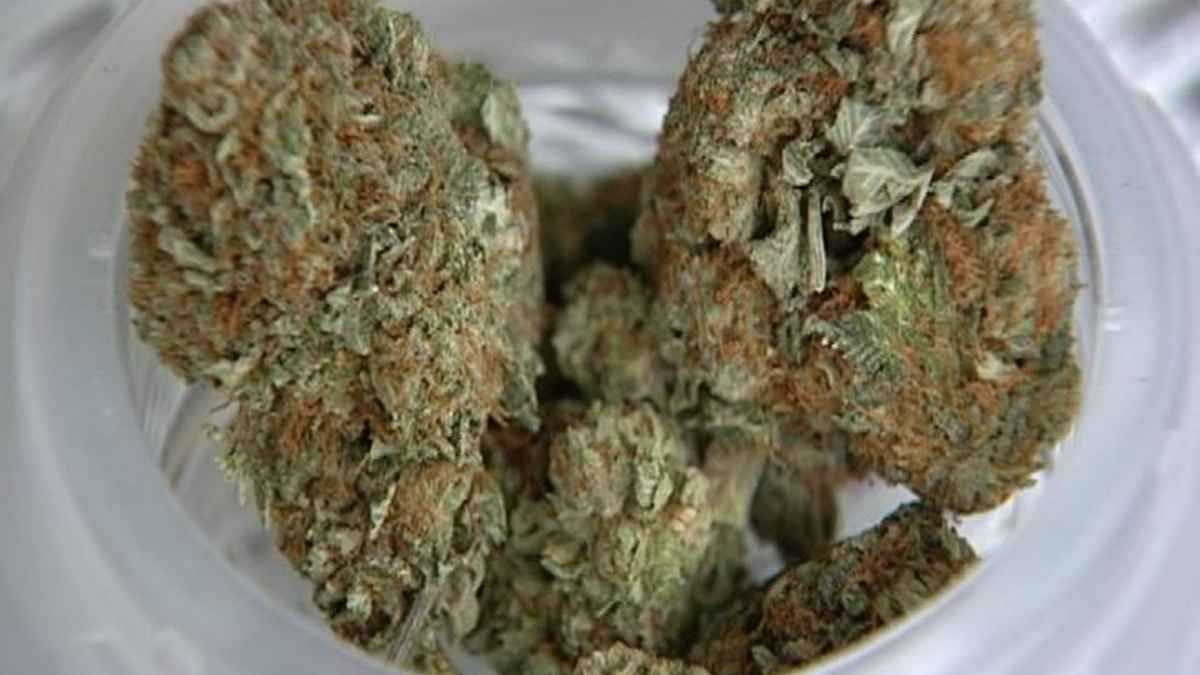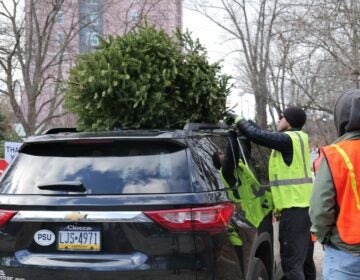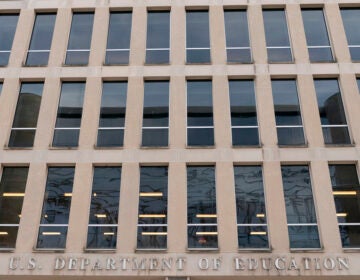Delaware’s push to legalize marijuana

(File/WHYY)
More Delaware legislators, advocates, and even ordinary residents, say they would support the legalization of marijuana.
Sen. Margaret Rose Henry, D-Wilmington, said she is drafting marijuana legalization legislation and plans to introduce it next year. Meanwhile, advocates are pushing for legalization through petitions and education, and Delaware voters report they would favor legalization.
“We’re going to be first on the East Coast, and we are the First State, so we should be leading the way,” said Sam Chick, a small business owner and former political candidate advocating for legalization.
Medical marijuana already is legal for adults and children with certain qualifying medical conditions.
Since July 2012, Delawareans over 18 have been able to receive doctor-recommended medicinal marijuana with a state-issued ID approved by their physician. Patients can take the ID to the state-run dispensary in Wilmington to receive the medication.
Last year, the use of medical marijuana oil was expanded to those under 18, if they have intractable epilepsy and certain muscle disorders.
In addition Gov. Jack Markell, D-Delaware, signed legislation eliminating criminal penalties for adults charged with possessing small amounts of marijuana for personal use in their home.
However, advocates and some legislators want to take it a step further and legalize marijuana entirely. Henry, one of the sponsors of the bill to legalize medical marijuana, wants to introduce legislation to make marijuana use legal for those 21 and over. She said the legislation would curb racial disparities in the justice system and improve the economy.
“By legalizing, regulating and taxing marijuana we can right a wrong in our criminal justice system while also creating a significant new revenue stream that can help bolster critical services in our state,” Henry said in a statement.
Cynthia Ferguson, executive director of DeNORML, a marijuana advocacy group in Delaware, said she would support Henry’s legislation, but would be concerned if it didn’t allow individuals to grow their own cannabis.
“Cannabis is a plant. It’s pretty easy to grow. And there are patients spending a lot of money, spending up to a thousand dollars a month, for something they could be growing in their closet,” she said. “[Restricting home-made marijuana] would still create some type of illegal activity related to cannabis.”
In states like Colorado and Washington, where marijuana use is legal, growers and dispensaries must be licensed.
Chick said he would support Henry’s legislation if it was regulated appropriately.
“The most important thing about regulation is keeping it out of the hands of minors. So we need to have something similar to what we have for cigarettes and alcohol,” he said.
“And let’s make it easy to do business, and tax it at a reasonable rate so we don’t have the black market at all. If you tax it too high, if you regulate it too much, you’re going to have the black market trade, and that’s not what we want.”
Studies show most Delawareans would be on board with legalization legislation.
A poll conducted by the University of Delaware’s Center for Political Communication found 61 percent of Delaware registered voters are in favor of marijuana legalization. Only 35 percent said they are opposed to legalizing marijuana.
The results were based on phone interviews conducted with 900 registered voters to learn more about where Delaware voters stand on key issues, including the death penalty and the upcoming election.
“It’s very easy to do your own research and see through the misinformation that’s out there,” Chick said. “People know cannabis is safe, legalizing cannabis is not going to be the end of civilization. They’re tired of being lied to, people are sick of the misinformation, they’re sick of being misled and they’re ready for the truth and that’s what you’re seeing in these polls.”
Ferguson said she isn’t surprised by the poll results either, as her organization, along with others like the Cannabis Bureau of Delaware and the Marijuana Policy Project, have been educating the public through events like town halls, as part of the Delaware Cannabis Policy Coalition.
“If they don’t use it they don’t know much about it. And a lot of people are surprised it’s less harmful than alcohol,” she said. “Education is really helping and that’s something we plan on doing the rest of the year and all of next year.”
Ferguson said she also believes legalization would strengthen Delaware’s economy through increased taxes, and would save money spent on possession charges. She also said it would create a booming agricultural sector.
“A good portion of our state is rural and farming,” Ferguson said. “And cannabis crops yield a heck of a lot more money than soybeans do. A new industry would bring in tons of jobs and tons of taxes.”
She added that the criminalization of cannabis feeds into inequality in law enforcement and the justice system. The ACLU reports that while marijuana use is about equal among blacks and whites, blacks are 3.73 times more like to be arrested for possession.
“Prohibition has caused more problems for this country than legalization ever would,” Ferguson said. “There are a disproportionate amount of African Americans arrested for cannabis, even though African Americans and white folks smoke it the same amount.”
On Monday, Chick started an online petition to legalize marijuana at delawarepetition.com in an attempt to push legislators along.
“We have a budget problem, we’re spending a lot of money in law enforcement, wasting it on cannabis prohibition, which frankly, is not a problem,” he said. “It’s not a danger to society, there’s more damage done from the criminalization of cannabis than from its use.”
WHYY is your source for fact-based, in-depth journalism and information. As a nonprofit organization, we rely on financial support from readers like you. Please give today.





